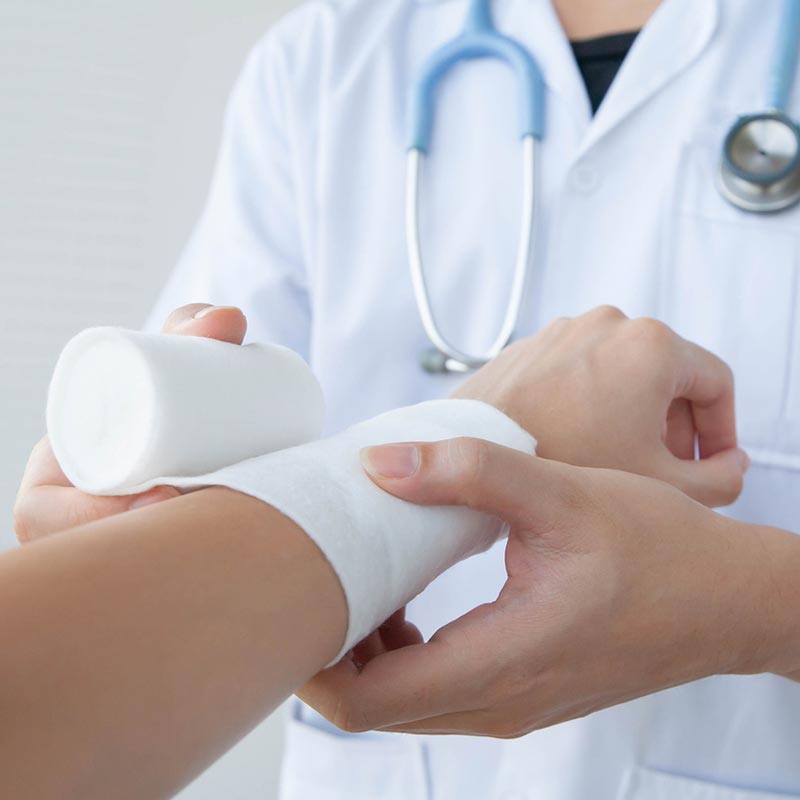Navigating Chemical Burn Claims: How Much Can You Receive in Washington DC?
Introduction
Chemical burns can be some of the most devastating injuries a person can endure. They may result not only in significant physical pain but also emotional trauma and financial burdens. For residents of Washington DC, understanding the nuances of chemical burn claims is crucial for navigating the intricacies of compensation. If you or a loved one has suffered from a chemical burn injury, finding a skilled burn injury attorney is essential to guide you through the legal labyrinth.
This article will delve into various aspects of chemical burn claims, including what compensation you might expect, the steps involved in filing a claim, and factors that can influence your settlement amount. By the end, you'll have comprehensive insights into "Navigating Chemical Burn Claims: How Much Can You Receive in Washington DC?"
Understanding Chemical Burns
What Are Chemical Burns?
Chemical burns occur when skin or tissue comes into contact with caustic substances such as acids, alkalis, or other corrosive materials. These burns vary in severity and can lead to long-term health consequences.
Common Causes of Chemical Burns
- Industrial Accidents: Workplaces handling hazardous materials often face incidents leading to chemical burns.
- Household Products: Many common household items contain chemicals that can cause burns if mishandled.
- Chemical Spills: Accidental spills during transportation or storage can result in exposure.
Types of Chemical Burns
Symptoms of Chemical Burns
Recognizing the symptoms early can be crucial for treatment:
- Redness and irritation
- Blistering and peeling
- Severe pain and swelling
Navigating Chemical Burn Claims: How Much Can You Receive in Washington DC?
When it comes to seeking compensation for chemical burn injuries, various factors come into play that determine how much you might burn injury lawyer near me Regan Zambri Long receive. The amount largely depends on the severity of your injury, medical expenses incurred, lost wages, and emotional distress caused by the incident.
Factors Influencing Compensation Amounts
Statistical Overview of Settlements in Washington DC
While specific amounts vary widely based on individual circumstances, here’s a rough breakdown:
| Severity Level | Average Settlement Amount | |---------------------|--------------------------| | Minor Burns | $5,000 - $15,000 | | Moderate Burns | $15,000 - $50,000 | | Severe Burns | $50,000 - $1 million+ |
Consulting a Burn Injury Attorney
Engaging with an experienced burn injury attorney is pivotal in maximizing your claim. They can evaluate the specifics of your case and help determine an appropriate settlement amount based on all relevant factors.
Steps to Filing a Chemical Burn Claim in Washington DC
Step 1: Seek Medical Attention Immediately
Before anything else, ensure that you receive the necessary medical care for your injuries.
Step 2: Document Everything!
Collect evidence related to your injury:
- Photographs
- Medical records
- Witness statements
Step 3: Consult a Burn Injury Attorney
A specialized attorney will help navigate legal complexities while ensuring that you understand your rights.

Step 4: File Your Claim Within Time Limits
Washington DC has specific statutes regarding personal injury claims; thus it’s crucial to act promptly.
The Role of Negligence in Chemical Burn Claims
Understanding negligence is key when pursuing a chemical burn claim. To establish negligence:
Potential Defendants in Your Claim
In chemical burn cases, various parties could be held liable:
- Employers (in workplace incidents)
- Manufacturers (of defective products)
- Property owners (if unsafe conditions exist)
Calculating Pain and Suffering Damages
Determining compensation for pain and suffering isn't straightforward but involves:
- Severity and duration of pain
- Impact on daily life
- Psychological effects
FAQs about Chemical Burn Claims in Washington DC
1. How long do I have to file a claim for my chemical burn?
In Washington DC, you typically have three years from the date of the injury to file your personal injury claim.
2. What types of damages can I recover?
You may recover economic damages (medical expenses and lost wages) as well as non-economic damages (pain and suffering).
3. How do I prove liability?
You need evidence demonstrating negligence by collecting documents like accident reports or witness testimonials.
4. Will my case go to trial?
Many cases settle out of court; however, if negotiations fail or liability is disputed, litigation may be necessary.
5. What if I was partially at fault?
Washington DC follows a comparative negligence rule; thus even if you're partially at fault, you may still recover damages reduced by your percentage of fault.
6. Do I need an attorney?
While it's not mandatory, having a burn injury attorney significantly increases your chances for fair compensation through expert guidance.
Conclusion
Navigating chemical burn claims requires diligence and knowledge about personal injury law specific to Washington DC. Understanding how much you might receive hinges on numerous factors including severity of injury and associated costs incurred after an incident occurs due to negligence on someone else's part.
If you've sustained such an unfortunate injury—whether at work or home—consulting with an experienced burn injury attorney will enhance your chances for obtaining just compensation while alleviating some stress during this challenging time ahead.
By educating yourself on these aspects before taking any action concerning "Navigating Chemical Burn Claims: How Much Can You Receive in Washington DC?", you're better positioned for success as you pursue justice for what you've endured!
This article provides general information and is not a substitute for legal advice; consult with experienced lawyers for personalized guidance
Attorney Advertising: The information contained on this page does not create an attorney-client relationship nor should any information be considered legal advice as it is intended to provide general information only. Prior case results do not guarantee a similar outcome.